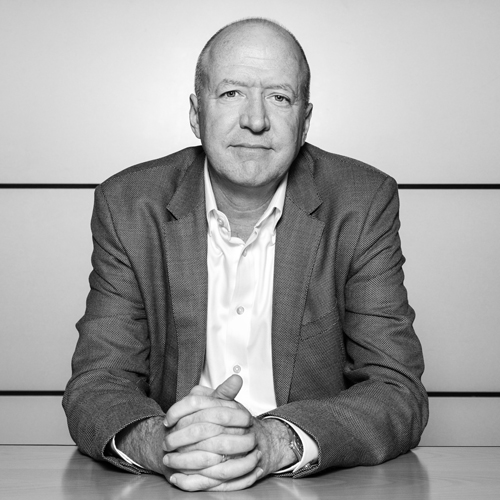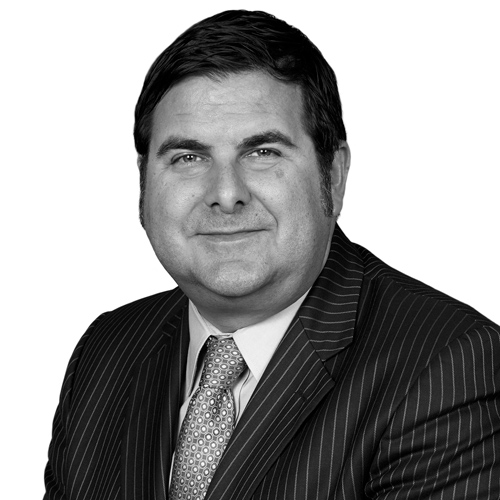
Most of the public discussion surrounding healthcare in the United States focuses on insurance and access—matters of unquestionable consequence. What’s moving initiatives forward in deeply effective and beneficial ways, ways that might make healthcare more affordable and efficacious, are electronic health records (EHRs) and practice management technologies that are revolutionizing the way care is delivered. Brian Farley, executive vice president, general counsel, and chief administrative officer for Allscripts Healthcare Solutions, is an enthused advocate for how digital tools can turn into disease cures. He’s a lawyer by trade, a businessman in practice, and a leader within an organization that is made up of mission-driven professionals.
“I’m so impressed with what you could almost describe as altruism in this company,” Farley says. “The need to make a difference is a driving force among the people who work here.”
Those people include nurses, physicians, and IT staff in addition to everything else necessary to run what is the second-largest, publicly traded healthcare IT company in the world. The company—which is based in Chicago with significant operations in Raleigh, North Carolina—employs nine thousand people across the world, has 350,000 physician users, and provides solutions to 4,600 hospitals and 13,000 extended care organizations.
Allscripts develops healthcare system portals that enable and extend relationships between providers and patients. These include self-scheduling appointments, online visit notes, shared EHRs, and integrated care management that breaks down divisions between specialists to manage healing within a holistic framework.
Farley, who has an MBA, has a strong interest in growing Allscripts. The company recently accelerated its growth with the late-2017 acquisition of McKesson Corporation’s hospital and health system IT business, Enterprise Information Solutions. The acquisition broadened the company’s product offerings and market reach.
The merger coincides with a major healthcare trend: the growing use of EHR systems that fundamentally change the way providers collect and consume patient health information. According to HealthIT.gov, a division of the US Department of Health and Human Services, 95 percent of large hospital systems, 86 percent of small rural, and 72 percent of small urban hospitals have advanced to “Stage 2 meaningful use” of EHRs, up more than five-fold from 2008, when paper-based records were predominant.
EHRs do more than just provide a way for medical specialists to coordinate the care of shared patients. This electronic information feeds into the exciting science of precision (genomic) medicine, which uses the data from millions of patients to focus on best treatments for individuals. Farley is quick to note that Allscripts doesn’t prescribe these precision genomic treatments, but it plays a critical supporting role. “We provide the usable data for physicians to make decisions on complicated, dense situations,” he says.
Beyond the implications of Allscripts’ EHRs, Farley is excited for other future-forward innovations in which the company plays a role. One is open digital architecture to build new IT solutions based on apps that connect into Allscripts’ technology. Another is a tool to consolidate records between providers as a way to allow patients to take greater control of their data and to inform physicians of lifestyle health habits (e.g., readings from wearable devices that measure steps walked, heart rate, and body weight).
On a broader scale, Farley says creating actionable solutions that look at entire patient populations will provide additional, useful analysis. “Data isn’t good unless it is actionable,” he says.
Farley didn’t start his career this passionate about healthcare. After about four years as an associate in a law firm, he worked his way up through a series of telecom firms before joining Allscripts in 2013. Now, five years later, he loves what the company does more than ever, and he enjoys leading an enthusiastic staff. His responsibilities have grown, and he sees great opportunities for all inside the company and among the clients they serve.
“I enjoy being an attorney, but I had no particular passion for the law as law,” he says. “I’m much more engaged on the business side.” Indeed, he is adept at accounting and financial statements as much as overseeing legal staff and functions at the company. “Having a law background makes me an effective leader,” Farley says. “We spot issues differently. We have a different methodology for solving problems.”
Indeed, he applies those methodologies to several departments under his wing: human resources, marketing, security, government affairs, and compliance—all in addition to thirty-seven people in his in-house legal staff.
As the healthcare system in the United States faces an uncertain future, Farley is sure Allscripts will be instrumental in finding a path forward.
“Hospitals and doctors are and will continue to be under cost constraints,” he says. “We identify where in the market there are problems and inefficiencies. We give them some of the most efficient ways to deliver healthcare.”
Photo: Callie Lipkin

